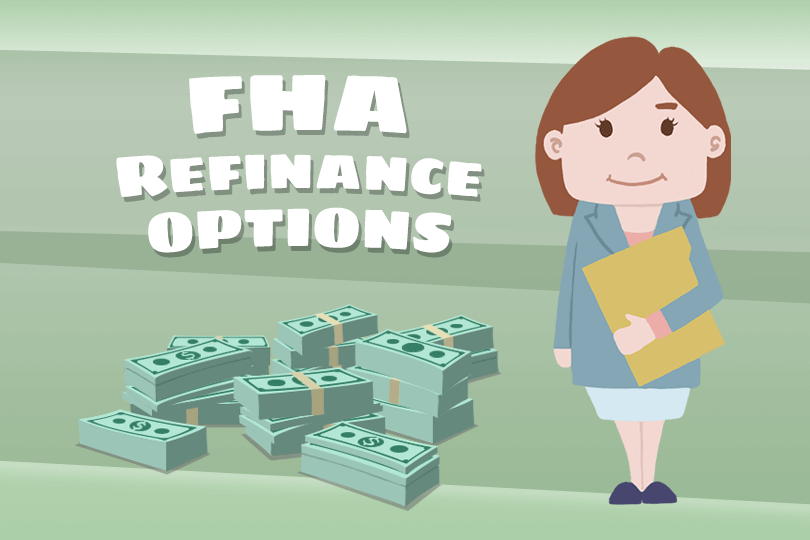Cash-Out Refinance: The Pros and Cons
January 16, 2021
What Is It?
A cash-out refinance replaces your current mortgage for a new one with a principal that is higher than the amount you owe, which allows you to keep the difference in cash. You may also be able to lower your interest rate or adjust the length of your loan term, but the primary purpose of a cash-out refi is to use your home equity to get cash in hand.
The Pros
- Immediate cash in hand: A cash-out refi’s main benefit is that it converts your home equity into liquid assets. You can therefore use the money you have available to fund any number of investments, whether it is home renovations or medical expenses. If you plan out how to use the equity in a responsible way, you can increase the value of your home and build equity in the long run.
- Consolidation of debt: Many borrowers use a cash-out refinance to combine all their high-interest loans, such as student loans and credit card debt, they carry in other places into a single mortgage. This helps to manage finances with a single monthly payment, and mortgages traditionally have lower interest rates compared to other personal loans. Keep in mind, however, that your house will become collateral.
- Tax credits: When used for home improvements, the interest on a cash-out refinance is tax deductible. If used any other way, the interest is tax-deductible up to $50,000 for an individual or $100,000 for a couple. You always should check with your tax advisor for current deductibility and updated laws.
- Higher interest rates: Cash-out refinances are always riskier than other types of refinances because you are borrowing more than what you already owe on the house. And with greater risk comes a higher interest rate.
- Extra costs: Like any other refinance, a cash-out refi requires the borrower to pay closing costs. There is also a second appraisal required for this option, which is a cost you will need to take on. Additionally, borrowers need to pay interest on the extra cash that comes with such a refinance, adding to the cost of the loan.
- Higher risk: The more equity you liquidate in your home, the more risk you take on if the property values decrease. Depending on what you need cash for, it might not be the best idea to drain the equity you have built on your house.
If you decide to go ahead with a cash-out refinance, the amount of additional cash you can borrow will vary based on several factors. The amount of money that you can borrow depends on the amount of equity that has been built up in the home's value. For example, to be eligible for an FHA cash-out refinance, borrowers will need at least 20 percent equity in the property based on a new appraisal.
If you have immediate and important expenses coming up, it may be worth looking into using some of the equity in your home. Talk to your loan officer to see of a cash-out refinance is the right step for you.
------------------------------
RELATED VIDEOS:
Obama Mortgage Is the Home Affordable Program
Principal Payments and Your FHA Loan
Living in a Single Family Home

FHA Loan Articles
November 21, 2024The dream of homeownership is with some from a young age. But in an uncertain housing market, some grapple with the question: Is buying a home the right move for me?
While renting offers relocation flexibility and lower upfront costs, homeownership provides a wealth of financial and personal benefits.
November 20, 2024Refinancing your mortgage offers a way to cash in on your home equity, potentially reduce your interest rate, or modify your loan term. Borrowers ready to consider have options including FHA loans and conventional loans.
While both provide avenues for refinancing, each loan type may be best for specific needs and financial circumstances. What are the differences between FHA and conventional refinance options?
November 14, 2024The home you want to buy might seem perfect, or it may have a few flaws that are acceptable in the grand scheme of things. But what about issues you can’t spot just by walking through the property a few times? A home inspection provides an unbiased, expert assessment of the property's condition, uncovering potential issues that might not be noticeable to the untrained observer.
November 12, 2024Escrow is an important feature of most typical FHA loans. An escrow account is a third-party account where borrowers deposit funds designated for property taxes and other uses. Requirements to use escrow accounts typically stems from a need to protect all parties involved in the transaction
November 2, 2024When it’s time to consider buying a home, the Federal Housing Administration (FHA) offers two popular options. One is the traditional FHA purchase loan many use to buy a house in the suburbs. But not everyone wants to buy an existing property. Some want more control over the design and configuration of the home.
The other FHA construction loan option, the one-time close mortgage, comes in here. This option is for those who want to approve floor plans, have a say in the types of materials used to build the home and choose its features.







